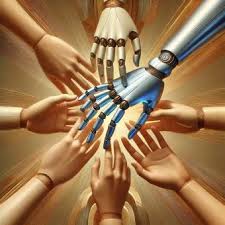
Breaking News
 "Common Sense" Is Back: UK Finally Scraps Non-Crime Hate Incident Laws Nationwide
"Common Sense" Is Back: UK Finally Scraps Non-Crime Hate Incident Laws Nationwide
 Russia Pummels Kiev, Hundreds Of Thousands Without Power, Ahead Of Trump-Zelensky Meeting
Russia Pummels Kiev, Hundreds Of Thousands Without Power, Ahead Of Trump-Zelensky Meeting
 Front Companies? Bombshell Report Exposes Network Of Somali-Linked "Empty" Daycares...
Front Companies? Bombshell Report Exposes Network Of Somali-Linked "Empty" Daycares...
 Silver Trades $80, China Takes Cover, And LBMA Worsens
Silver Trades $80, China Takes Cover, And LBMA Worsens
Top Tech News
 EngineAI T800: Born to Disrupt! #EngineAI #robotics #newtechnology #newproduct
EngineAI T800: Born to Disrupt! #EngineAI #robotics #newtechnology #newproduct
 This Silicon Anode Breakthrough Could Mark A Turning Point For EV Batteries [Update]
This Silicon Anode Breakthrough Could Mark A Turning Point For EV Batteries [Update]
 Travel gadget promises to dry and iron your clothes – totally hands-free
Travel gadget promises to dry and iron your clothes – totally hands-free
 Perfect Aircrete, Kitchen Ingredients.
Perfect Aircrete, Kitchen Ingredients.
 Futuristic pixel-raising display lets you feel what's onscreen
Futuristic pixel-raising display lets you feel what's onscreen
 Cutting-Edge Facility Generates Pure Water and Hydrogen Fuel from Seawater for Mere Pennies
Cutting-Edge Facility Generates Pure Water and Hydrogen Fuel from Seawater for Mere Pennies
 This tiny dev board is packed with features for ambitious makers
This tiny dev board is packed with features for ambitious makers
 Scientists Discover Gel to Regrow Tooth Enamel
Scientists Discover Gel to Regrow Tooth Enamel
 Vitamin C and Dandelion Root Killing Cancer Cells -- as Former CDC Director Calls for COVID-19...
Vitamin C and Dandelion Root Killing Cancer Cells -- as Former CDC Director Calls for COVID-19...
 Galactic Brain: US firm plans space-based data centers, power grid to challenge China
Galactic Brain: US firm plans space-based data centers, power grid to challenge China
AI, Nature & Legal Personhood

At the Center for Self Governance, we believe that governance begins with the individual—you, the natural person, endowed with unalienable rights by your Creator. But today, that foundation is under siege. Across the globe, debates are raging about granting "personhood" to artificial intelligence (AI), rivers, and even inanimate objects. What does this mean for you, the human citizen?
Let's get clear on terms. Black's Law Dictionary defines a "legal person" as an entity—like a corporation—that owns its rights and duties under the law. A "natural person," on the other hand, is a human being capable of capable of exercising your rights and duties. The distinction matters. Legal persons, like businesses, serve a purpose, but they don't breathe, think, or dream. You do. Yet, some are pushing to elevate these artificial constructs—or even machines and ecosystems—above the natural person.
Take Washington state's HB 2029, introduced by Rep. Hunter Abell. It boldly declares that personhood belongs to humans alone—"members of the species Homo Sapiens." Why? Because the rise of AI and debates over granting rights to nature threaten to blur the lines, potentially making humans second to soulless systems. Imagine an AI "citizen" owning property or suing you, its rights enforced by faceless algorithms, while your voice gets drowned out. Or picture a river with legal standing, its "interests" trumping your family's needs.
This isn't sci-fi—it's happening. New Zealand's Whanganui River is a "legal person." India's Ganges too. AI's role in our lives grows daily, with some advocating it deserves rights. At CSG, we see the danger: if everything becomes a "person," the natural person—you—loses. Legal persons don't vote with conscience or build communities. They don't bear the moral weight of liberty. Elevating them risks turning humans into mere cogs in a machine, not masters of our destiny.
Our view, is unapologetic: governance flows from the consent of the governed—humans, not algorithms or forests.



